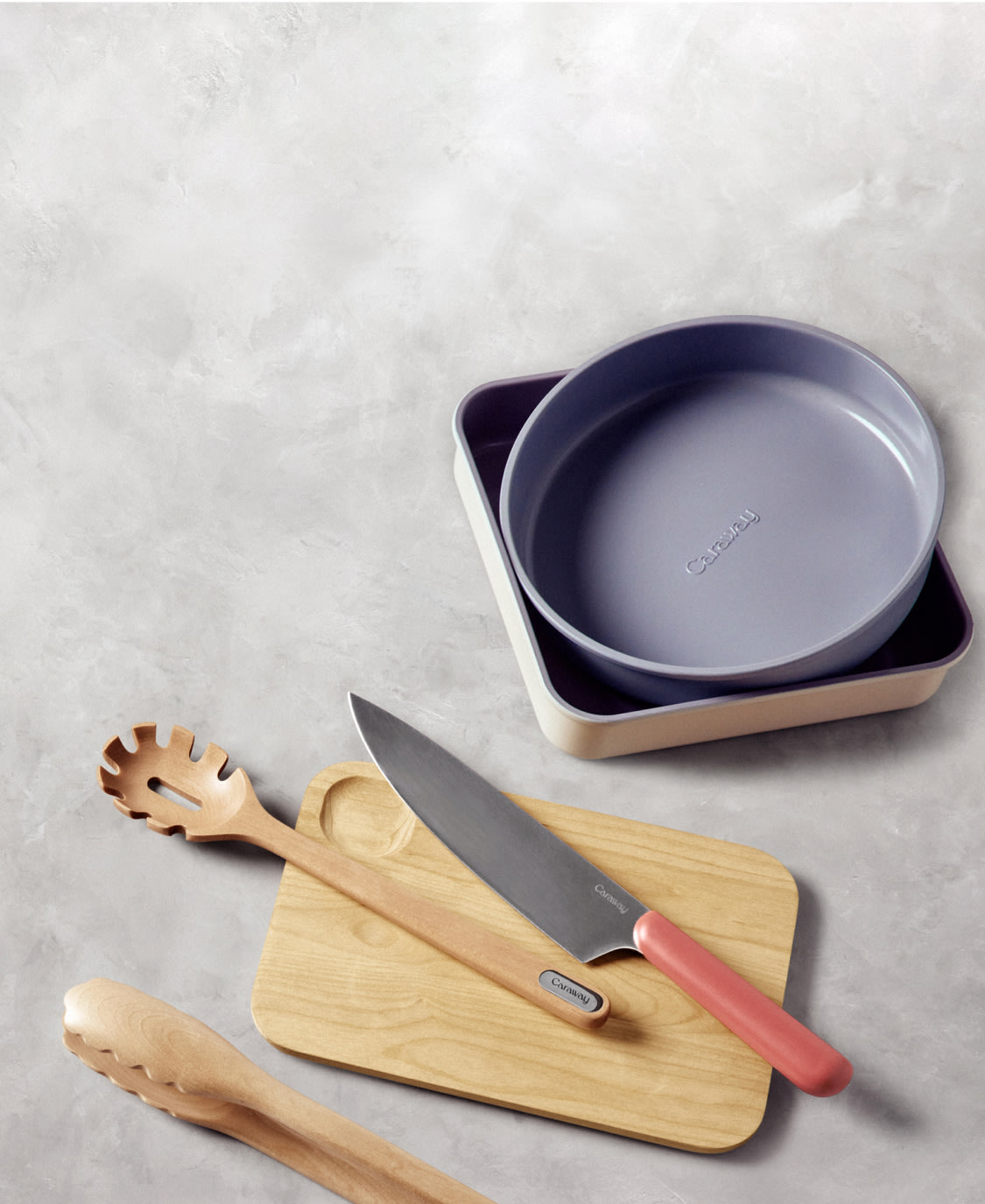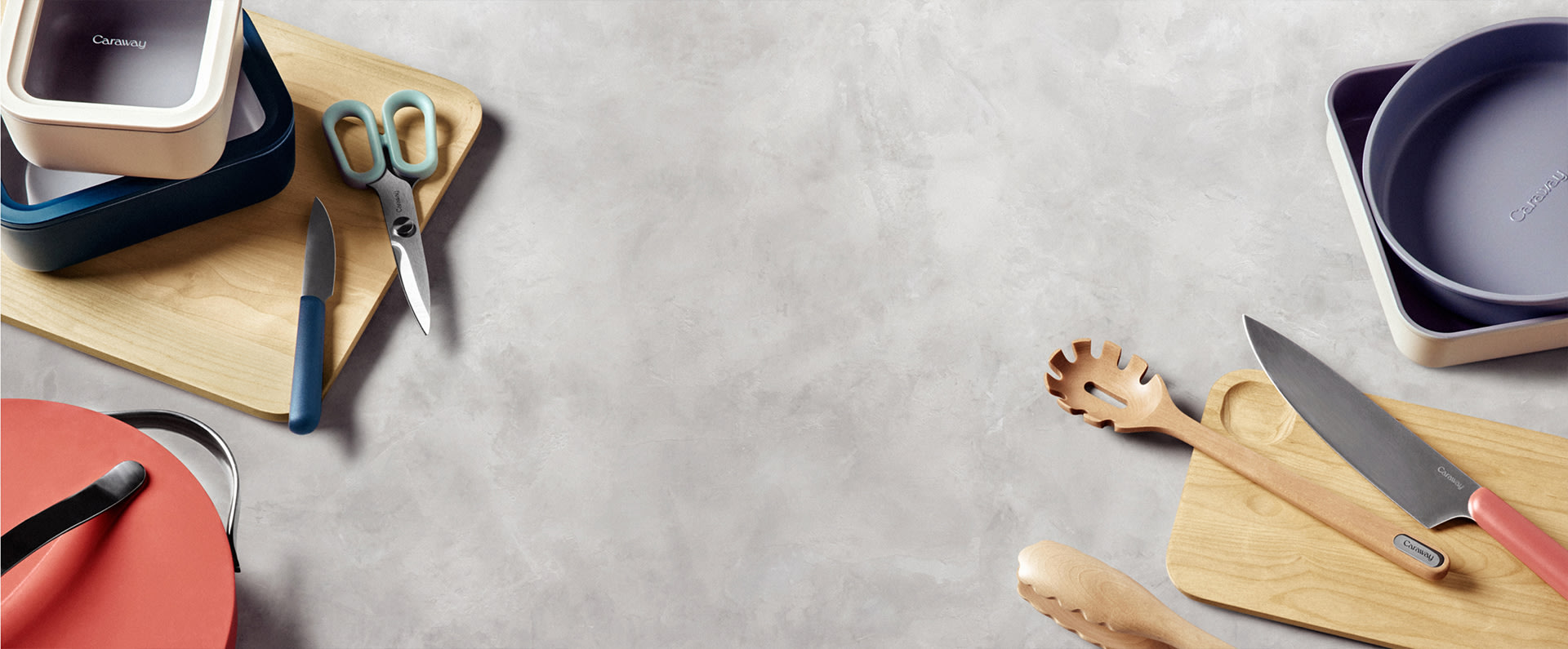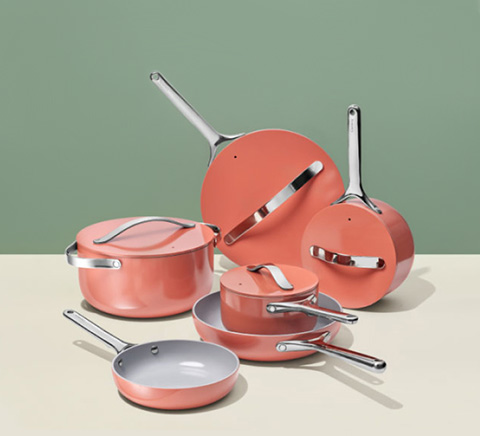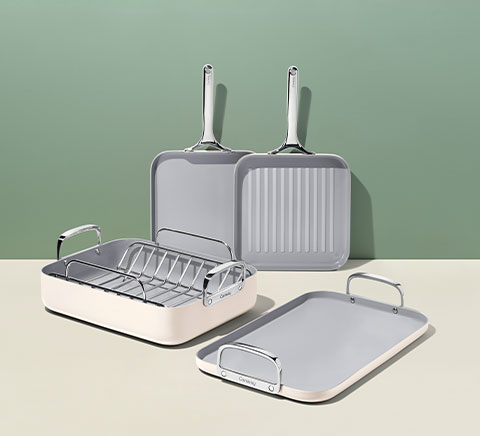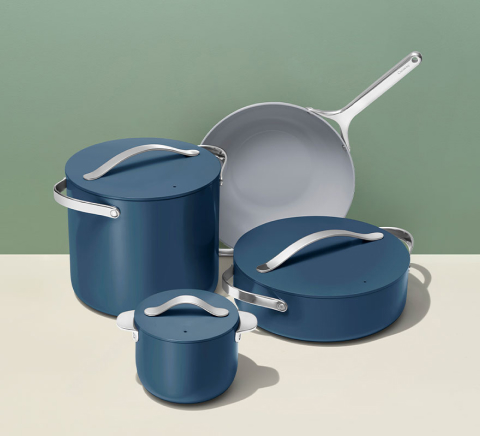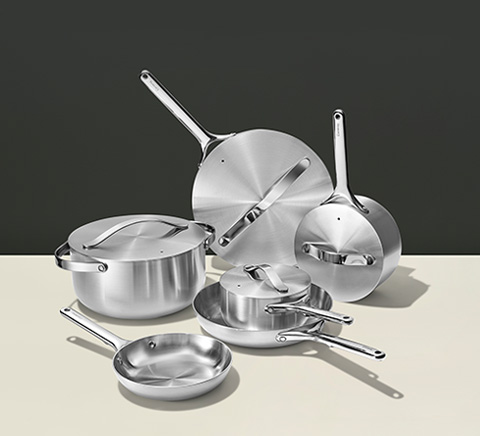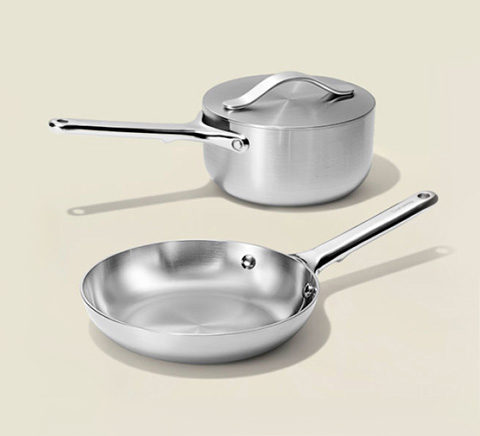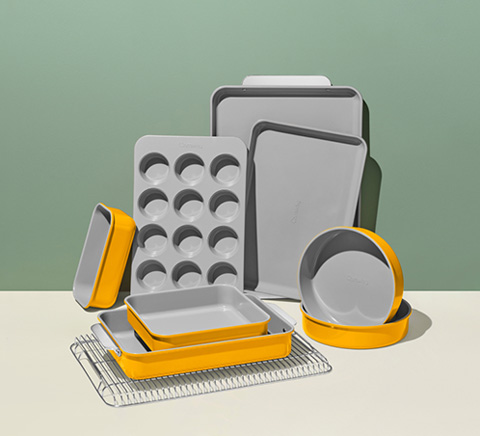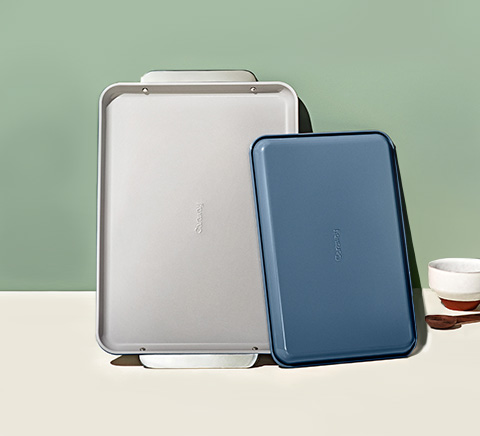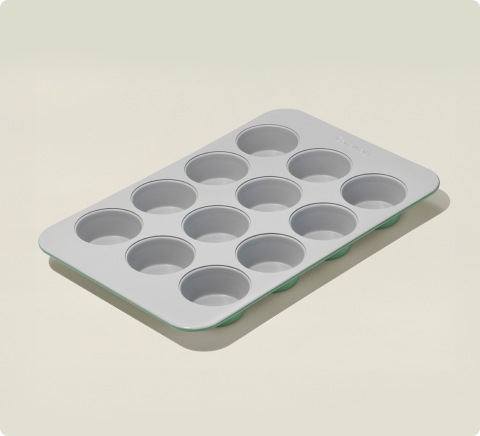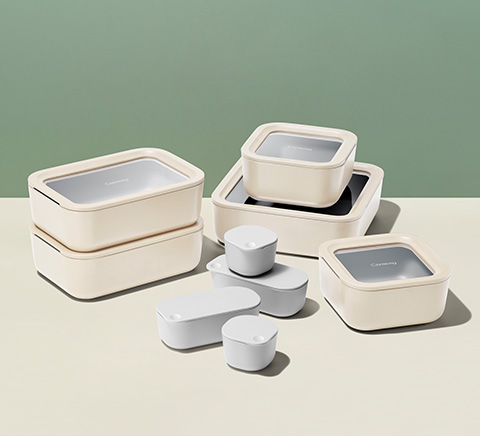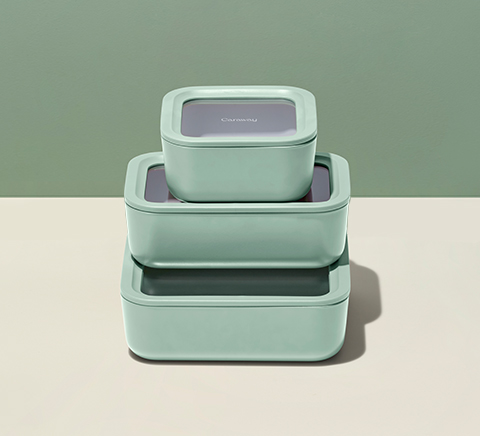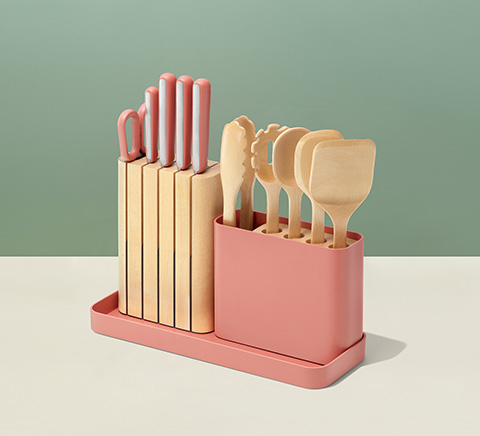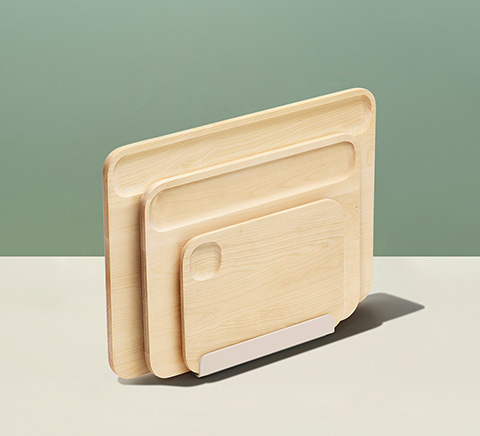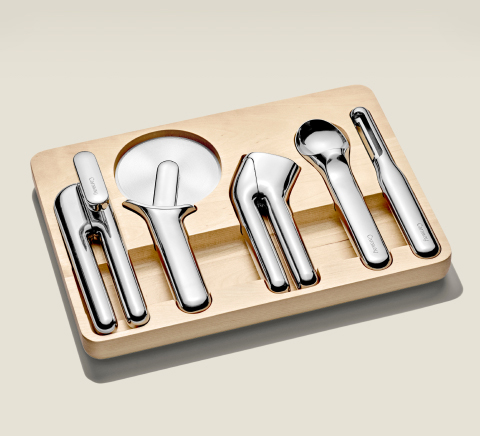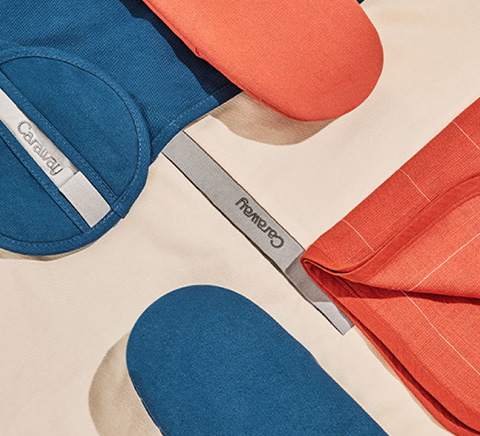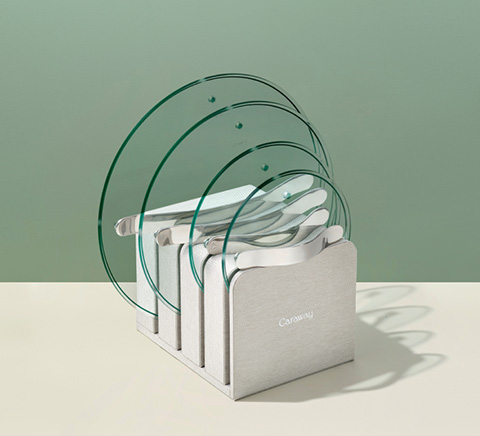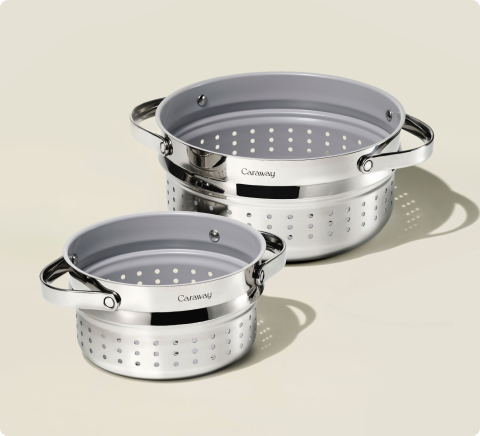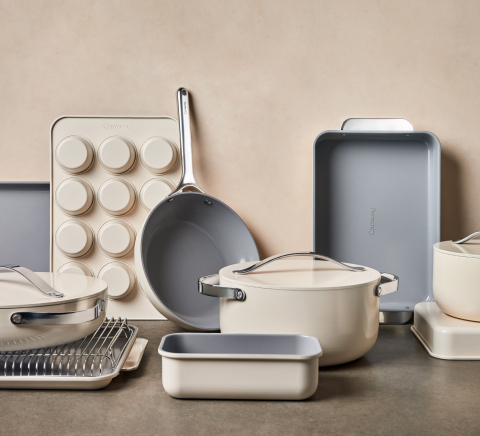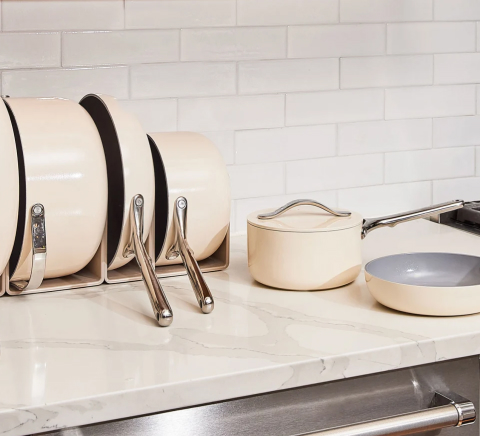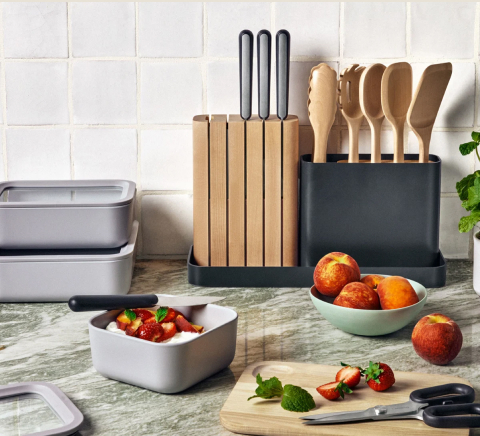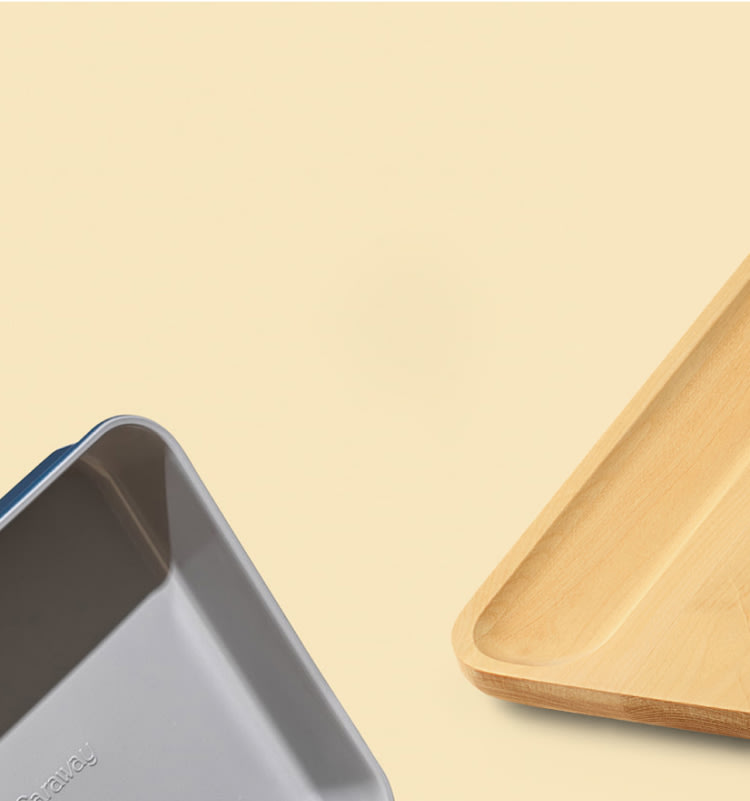
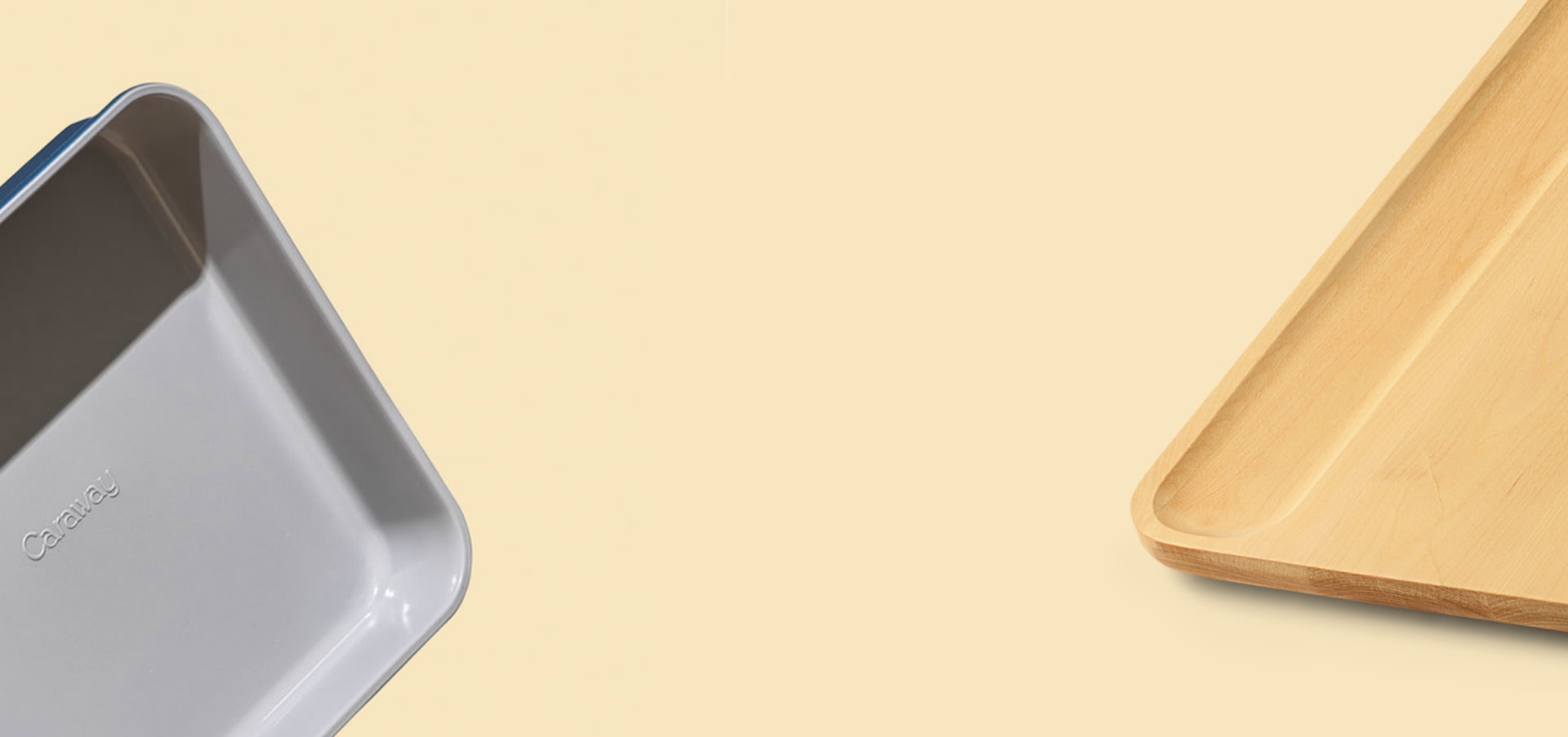
Our Materials
At Caraway, we believe kitchenware should be chemical-free and high-performing.
What’s hiding in your kitchen:
PTFE (aka Teflon®) & microplastics enter your home-cooked meals from the tools you use to prepare your food.
150 Seconds
How long it takes for a traditional non-stick pan to release dangerous chemicals when used on high heat.
Forever Chemicals
Chemicals that enter our body and take decades to leave, potentially causing health risks like cancer or respiratory issues.
ENTER CARAWAY
Your Kitchen, Made Better

SUPER SLICK NON-STICK
Ceramic-Coated Cookware
Easy to use and clean, without having to worry about forever chemicals. Food will effortlessly glide around the pan, with minimal oil or butter.

BRING THE HEAT, NOT THE TOXINS
Stainless Steel
Our 5-ply stainless steel is durable and free of toxic materials like PFOA, PTFE, lead, and cadmium. We also use a biodegradable citric wash method, making our pans more durable without any toxins.

PREP WITHOUT PLASTICS
FSC-Certified Birch Wood
We use 100% FSC-Certified Birch Wood for all our Cutting Boards & Utensils, keeping microplastics away. 100% FSC-Certified Birch Wood is also sustainable, and our Utensils won't damage any of your Cookware.
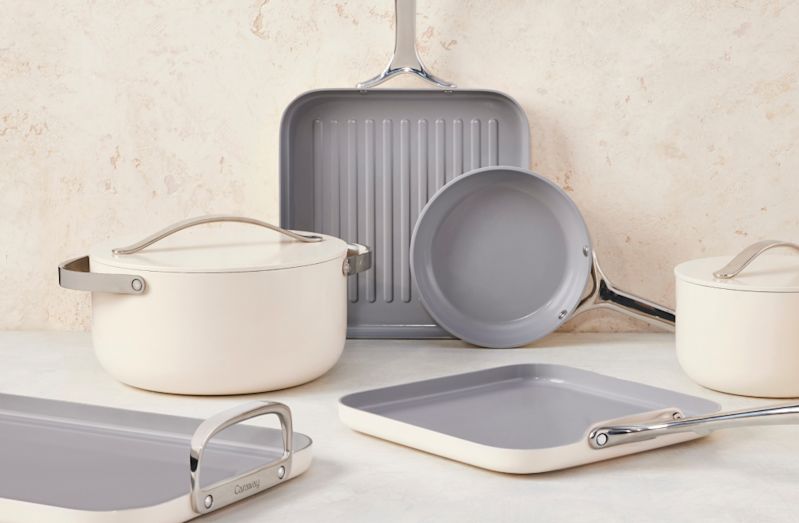
SUPER SLICK NON-STICK
Ceramic-Coated Cookware
Easy to use and clean, without having to worry about forever chemicals. Food will effortlessly glide around the pan, with minimal oil or butter.
Stainless
FSC-Certified Birch Wood
Form Meets Function
Non-Toxic
Consciously-designed kitchenware that won’t leach any harmful chemicals into your food.
Eco-Friendly
Recyclable materials and sustainable production mean our products are good for you and the planet.
Easy Cooking
High-performing materials make meal prepping and cooking something to look forward to.
Our High Standards & Ethical Practices
Ethical Manufacturing
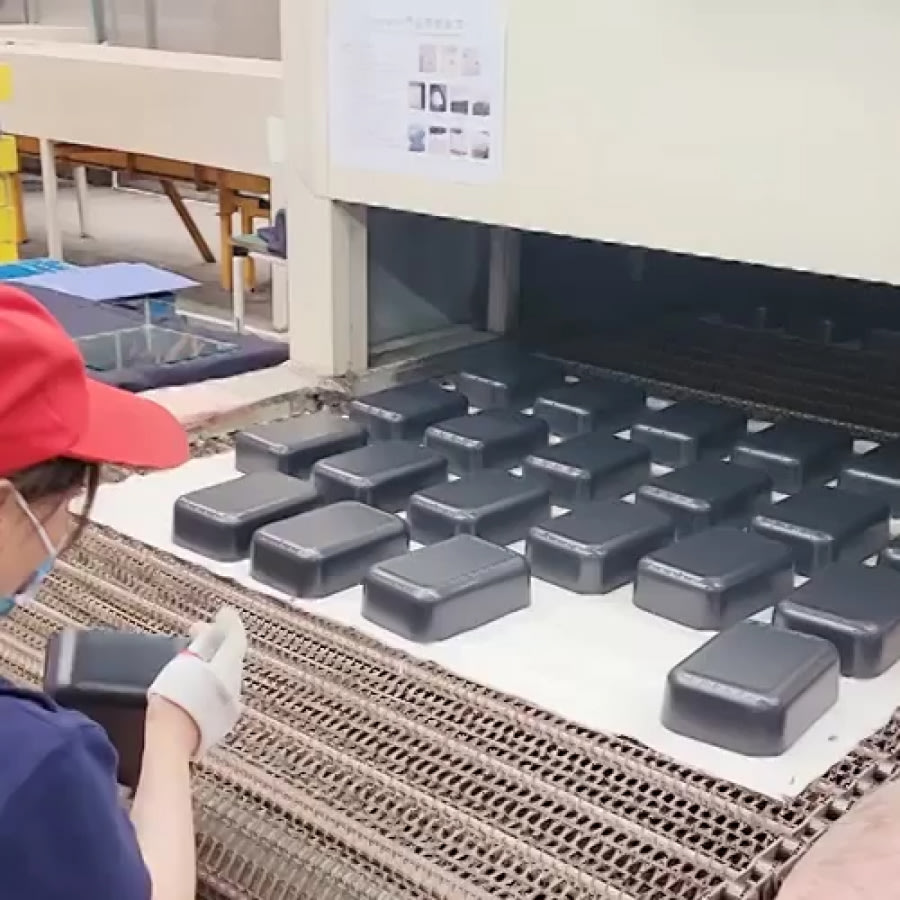
Ethical Manufacturing
We work exclusively with BSCI and SMETA manufacturing partners that ensure workers are safe, paid fairly, given benefits, and work regular hours.
Environmentally Forward
Environmentally Forward
Our planet will always be top of mind. We opt for the most sustainably-sourced and environmentally-friendly materials.
Thoughtful Packaging
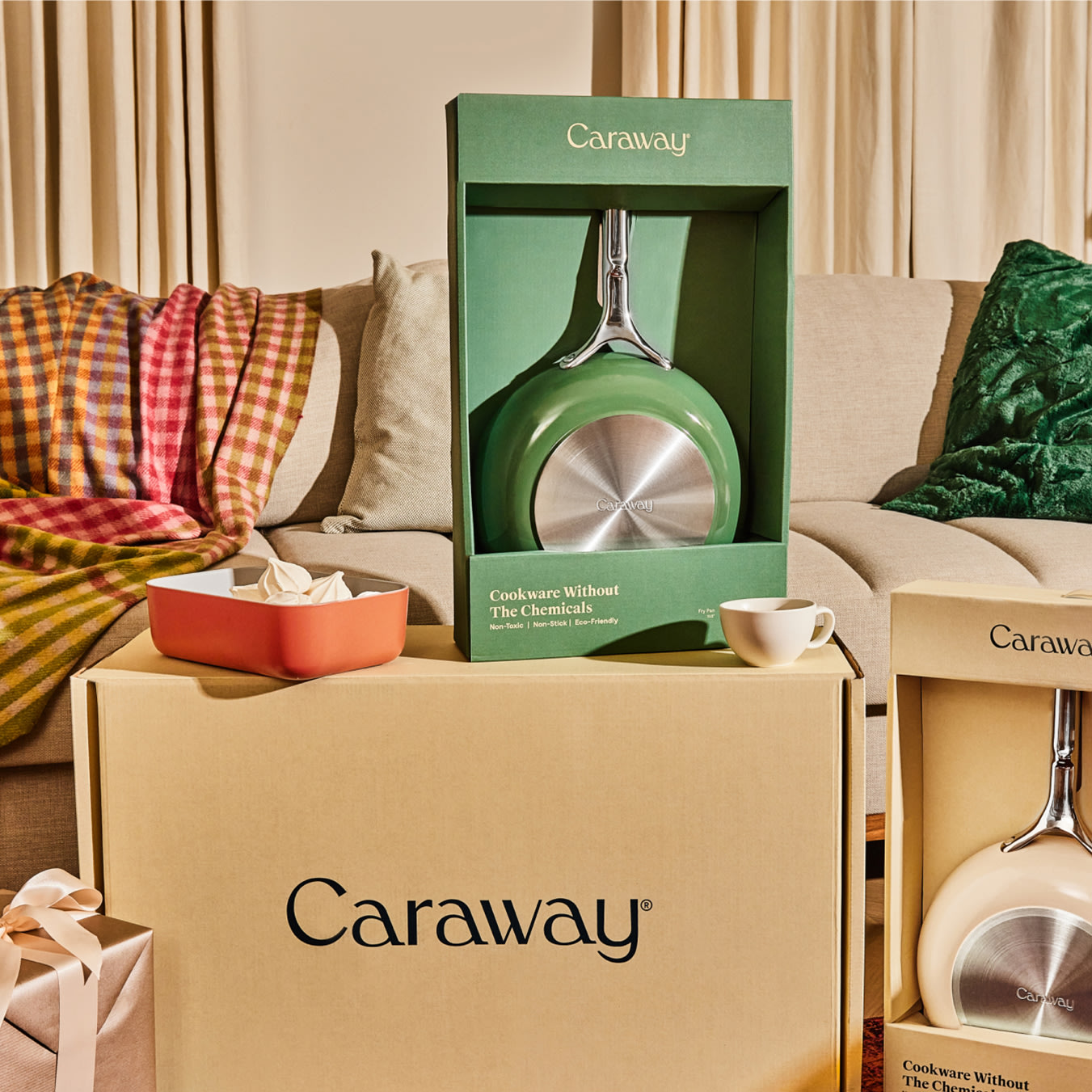
Thoughtful Packaging
Our packaging utilizes 100% recycled cardboard, low-impact print dyes, and zero single-use plastics. Plus, we're consistently working on ways to get Caraway to your kitchen with the smallest carbon footprint possible.
How We Compare
| Caraway® Non-Stick | PTFE Non-Stick (ex: Teflon®) | |
|---|---|---|
| Non-ToxicAre the materials used in the non-stick coating safe for my family and the environment? | ||
| Non-StickDoes food easily slide around the cooking surface with a minimal amount of oil or butter? | ||
| CleaningAre the pots and pans easily washed and cared for? | ||
| Heat ConductivityDoes the surface heat evenly, avoiding cool spots and unevenly cooked food? | ||
| VersatilityDoes the cookware perform well no matter what cooktop or environment? |
Questions?
We Have Answers.
How safe is your non-stick coating?
Our ceramic non-stick is made from inorganic natural ingredients which are all 100% safe to use in contact with all foods (and FDA approved). Plus, the absence of potentially dangerous chemicals like PTFE, PFOA, PFAS, lead, and cadmium means that there is no chance of harmful materials leaching into your food, even if you accidentally scratch or overheat your pan.
Is stainless steel safe for food? What about chromium and nickel?
Stainless steel is widely regarded as one of the safest cooking materials! The addition of chromium and nickel provide important benefits such as increased corrosion resistance & durability, and won’t affect your food in any harmful way.
If you have a nickel or chromium allergy, we recommend not using this cookware.
How do I care for my cutting boards?
To extend each board's longevity, apply mineral oil with a clean cloth once a month. Let oil set for a few hours before wiping dry with a cloth. For an extra shine, apply food-grade beeswax once dry. Never use vegetable or nut-based oils on your board.
How do I disinfect my boards?
To disinfect stains, you can squeeze fresh lemon juice onto your boards with a sprinkle of kosher salt, using the lemon to rub the mixture across the entire area. Once dry, gently scrape off. Alternatively, use a solution of 25% distilled white vinegar and 75% water. Never use bleach or baking soda on your boards!
